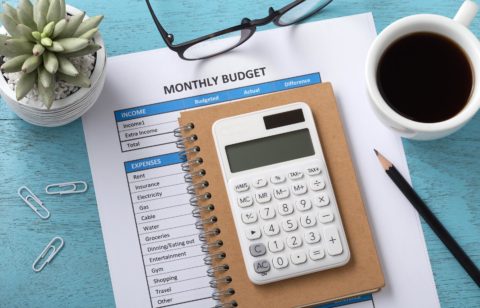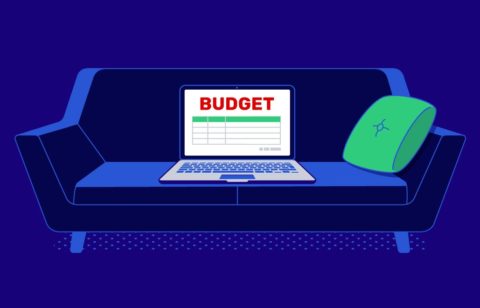One of the best days of your career will be the day you retire. With the daily grind in your rearview mirror, you’ll enjoy doing what you want to do instead of what you have to do. However, within that newfound freedom will reside a freshly minted responsibility. You’ll have to make your retirement savings last. This means you’re going to have to craft a retirement budget. With that in mind, let’s take a look at how to go about budgeting for a retirement you’ll enjoy.
What Are You Working With?
In order to draft an effective budget, it’s important to know what you’ll have to work with. Figure out how much it will take to meet your essential expenses each month. You know—food, clothes, shelter and the like. Typical retirement expenses include insurance, Internet, telephone, transportation, utilities, and credit cards.
We’ll look at those in more detail below.
A good place to start is reviewing year-end statements to help you get a handle on what these costs are currently running each year. Divide them by 12 and you’ll know what you’ll need to be prepared to do each month. There is some good news within this, because you’re not going to work everyday, your fuel/transportation costs will be much lower. So too, will your wardrobe related expenses, and possibly even your food budget.
Next, figure out how much you’ll have coming in each month from your Social Security, annuities, pensions, income properties, 401(k) s, IRAs and the like. If the numbers line up such that you’ll have more than you need to keep ends meeting, you’re in great shape.
On the other hand, if your ends will be residing in different ZIP codes, you’re going to have to figure out how to get more dollars in the door to get them together. A part time job doing something you really end is likely to be the move in that case, even after you retire. Lots of retirees go back to work these days, so don’t feel bad if you’ll be numbered among them. There ain’t no shame in that game.
What Are Your Have to Haves?
As we mentioned above, there are some things you’ll still have to cover, even though the front door is no longer hitting your back each morning.
Health care is going to be a big one. Fortunately, Medicare will take some of the sting out of that bite. You might also have an ongoing health insurance plan from your employer. Otherwise, you’re going to have to be ready to cover the cost of your own health insurance supplemental premiums and deductibles.
Housing can also take a sizable chunk out of your retirement cash. This won’t be as much of an issue if you pay your mortgage off before you retire. Property taxes will still be a thing though. You’ll also still need to deal with maintenance, utilities and potential repairs. A good rule of thumb regarding maintenance/repairs is to plan to spend at least one percent of the value of your home each year to cover those costs.
Getting around will cost you less, since you won’t have to go to work every day. On the other hand, you didn’t work all of those years to chill at the pad and binge watch Netflix every day. This means you’re going to need some cash to fuel, insure and maintain your ride, or fund transportation to places you’ll enjoy. The smart play here is to buy a car with which you’ll be happy from now on and get it paid for before you stop working. That way, you’ll only have to keep it running and insured—the latter of which will cost less as the car ages.
Meal costs may be reduced too, since you won’t be going out to lunch with work friends every day. You’ll be eating at home more often, which costs less. However, you will still need to eat, and with more time on your hands you might decide to spend some of it in the kitchen exploring recipes you’ve always wanted to try. In that case, it might be a good idea to keep your food budget constant for the first year or so, until you see how that really shakes out.
Figure In Some Funds For Fun Too
Entertainment should figure into your budget as well. Again, what’s the point of working some 50-odd years or more, only to spend the rest of your life bored out of your mind?
What costs are currently related to your hobbies and outside entertainment? You’ll probably still want to give your kids and grandkids holiday and birthday gifts too. Going out to dinner every now and then, or a nice lunch will be nice too—right?
Maybe you’ll want to travel, whether it’s day trips, weekend jaunts, or even a cruise around the world. Whatever it is, you’ll need to set aside some cash for that purpose too. Depending on how you’re fixed, you might even consider dedicating the income from a specific IRA or other tax deferred source solely to entertainment.
While You Still Have Time
When it comes to retirement, there are basically two kinds of people—those who have retired and those who will. Preparing for it now is a really good thing to do if you’re in that second category.
Take a look at your current income and if you have yet to do so, find ways to put cash away for your retirement day. One of the smartest things you can do in that regard is find ways to cut back your expenses so you can fee up cash for investments. This is particularly true if you’re carrying credit card debt from month to month.
Eliminating those obligations will position you to put more of your money to work for you right away and the professionals at National Debt Relief can help you find ways to put that debt in your rear view mirror too.







